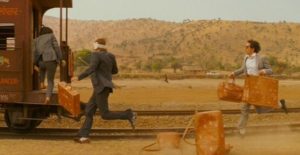The other day I was talking to a colleague who is a medical ethicist. This woman who is also an Orthodox Rabbi, consults with hospitals in the Northeast. In this time, in this moment, the conversation that is happening is about triage and scarce resources. Four people come into the Emergency Room presenting COVID symptoms and in respiratory distress. There are only three respirators. Who gets the respirators? Who lives and who dies? These are decisions that are made by doctors and nurse practitioners and ethicists constantly.
My colleague told me that the term they are using for the resulting emotional tumult that the medical personell experience is moral anguish. The anguish that comes from having to make impossible choices on a regular basis, day in and day out.
In thinking about our conversation I was very bothered. I was, of course, pained by the impossible choices that have to be made, and grateful that someone else was making them, and overwhelmed by the anguish that making those choices would cause. However, I was bothered by something else. I though of it as moral rage. The rabbis called it taromet, a Hebrew word which comes from the same root as the word ra’am which means thunder.
In the Mishnah, the 3rd century text which is the cornerstone of the Jewish legal tradition, in discussing labor law, the following is found:
If one hired workers and they deceived each other, they have no legally valid complaint but only cause for taromet/outrage.
There is a lot that is ambiguous about this text. It is those ambiguities—the use of pronouns, i.e. “they deceived each other”—that keeps me employed as a Talmud professor. However, the Babylonian Talmud, the major commentary on the mishnah explains that the type case we are talking about is when an employer or their agent deceives workers into hiring on at a lower salary than the employer would have been willing to pay. When this deception comes to light, it is, for the rabbis, obviously a moral lapse, an injustice. However, since the workers agreed to the lower wage, it is not a violation of the law and therefore the only avenue that is left open is taromet/moral rage.
The moral decisions that front line clinical medical workers have to make are built upon a much wider foundation of unjust and immoral decisions that have been made over the past many years. The moral anguish distracts, in a sense, from the necessary moral outrage. We don’t have enough ventilators or PPE or other vital equipment because of the way the supply chain was created. The supply chain was created such that everything would be produced “Just in Time” in order to be more “efficient”. What efficient means is that it cuts down on “waste” in labor and materials. It also means that there are no stockpiles because there is no profit and there is no governmental leadership to value lives over that profit.
At this moment we have to honor all those who are suffering moral anguish from having to make truly impossible decisions. But it is incumbent upon us to also tap into out moral outrage, our taromet. This virus has only made obvious, and exacerbated, systemic inequities that already existed—in our carceral and justice system, in our immigration system, and our housing systems. Now that they are obvious we must try to fix them to save lives now and create a more just society in which we can live after the plague.

 Why do we read the book of Jonah on Yom Kippur?
Why do we read the book of Jonah on Yom Kippur?